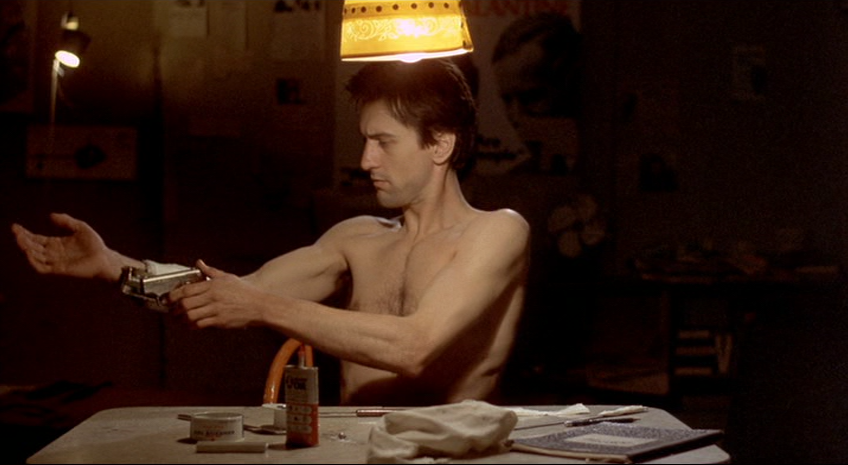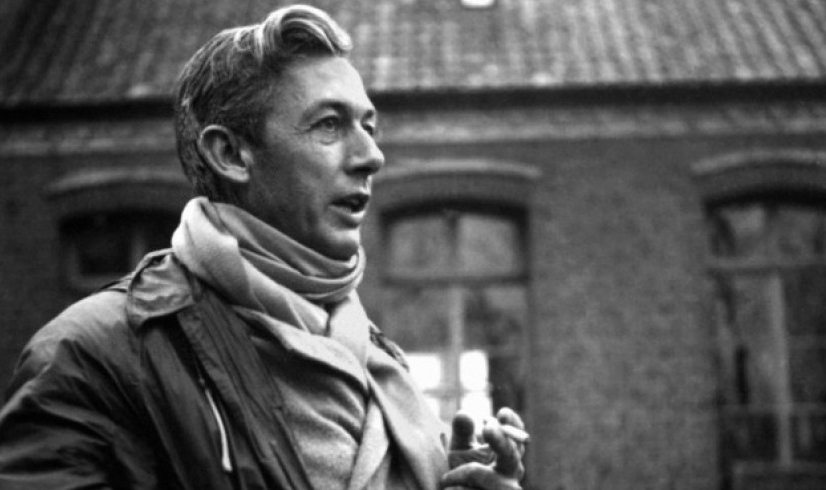Communal bread and wine, dime-store cereal and brandy. How curious is it that malnutrition was my entry into the soul-nourishing cinema of French director Robert Bresson by way of Martin Scorsese’s Taxi Driver (1976)? The analogy is spilled by cinephile and screenwriter for the Robert De Niro vehicle, Paul Schrader, in his forthright DVD commentary that discloses various homages to Bresson’s Diary of a Country Priest [Journal d’un curé de campagne] (1951) that the Cinematheque will screen on Wednesday, June 24, as part of this summer’s ‘New French Restorations’ series. But Schrader peers deeper into the essence of God’s Lonely Man and spiritual isolation than this lone parody of a character’s diet would initially suggest, as he has demonstrated a sincere reverence for Bresson’s methodology throughout his career, even penning an essay book-as-Bresson tribute entitled Transcendental Style in Film (1972).
With the esteemed French filmmaker driving Schrader’s creative ambitions, Diary of a Country Priest finds further relevance in Travis Bickle (De Niro)’s voiceover narration about stomach cancer as direct allusion to the Priest of Ambricourt (Claude Laydu)’s deteriorating condition and Catholic pupil Séraphita Dumontel (Martine Lemaire) as the spitting angelic image of Bickle’s love interest Betsy (Cybill Shepherd). In perhaps the most recognizable scene-as-tagline in Taxi Driver with the forearm-mounted “gun-glide,” the screenwriter recognizes the intense study of this task as a spiritual reference to the central character much like the encapsulating title of Bresson’s film.

Robert De Niro in a scene from ‘Taxi Driver.’
Schrader is just one student in the tradition of many Europeans and their American art house disciples who’ve utilized the medium to hone in on metaphysical quests for meaning — from Carl Theodor Dreyer’s harrowing trial of The Passion of Joan of Arc (1928), God’s Silence in Bergman’s Winter Light (1962), to more recent dramas like La Sapienza (2014) and Stations of the Cross (2014) selected for the 2015 Wisconsin Film Festival. Bresson’s ascetic experiments are entrenched in the history of film’s introspective journeys on par with any epic action picture. Unlike many of those big-budget spectacles, Bresson ardently avoids exaggerating for dramatic effect and instead pursues an authentic aesthetic many would liken to a documentary. One of his first masterpieces, Diary of a Country Priest, a subdued portrait of a young priest’s divinely guided relocation to a parish in the country town of Ambricourt during the frigid winter months, brings this instantly to light.
In Bresson’s committed preference for non-professional actors for this adaptation of the 1936 novel by Georges Bernanos (whose Mouchette would again serve as the catalyst for the film of the same name in 1967), the director only considered men of faith for the devout leading role. In complete spiritual synchronization, Claude Laydu inhabited the demands of priestly performance by studying the mannerisms of clergymen and actually starving himself. In conjunction with frequent long takes and probing close-ups, the priest’s increasingly world-weary diary writings instill the tale with a symbolic permanence with regard to not only its obvious religious resonance but also the film’s origins. But Bresson also embraces a non-literal translation of the novel with a unique, irregular rhythm that often utilizes cuts as a method of revealing. Provocative off-screen clamor of the community also becomes its own diegetic sub-narrative in itself, psychologically luring audiences into a fully inhabitable panorama that extends beyond the limited view of the camera’s boxed Academy aspect ratio (1.33:1).

A young Robert Bresson. Photo courtesy of MUBI.
Simply Shakespearean in scope, the graceful 64 year-old work’s impression can ultimately be measured by its timelessly poignant insight. The singularly attentive chronicle of the priest’s alienation in the inimical village in northern France is precisely what inspired young American filmmakers like Paul Schrader and Martin Scorsese to descend into the heart of the diffusing social ills of their time (1970s New York). Taxi Driver certainly mirrors Diary of a Country Priest‘s distillation in its forsaken main character seeking redemption through perceived acts of suffering and altruism. As a French critic once put it, Bresson, even as an agnostic, brought with him a belief in Heaven and a subsequent mid-century revitalization of faith on film and faith as film in a time before Bergman’s breakthroughs and the complete anarchism of ’60’s New Wave.
- Diary of a Country Priest screens on Wednesday, June 24, at 7:00p as part of Cinematheque’s ‘New French Restorations’ series at 4070 Vilas Hall. A newly struck 35mm print from Rialto Pictures will be presented. Admission is FREE.
